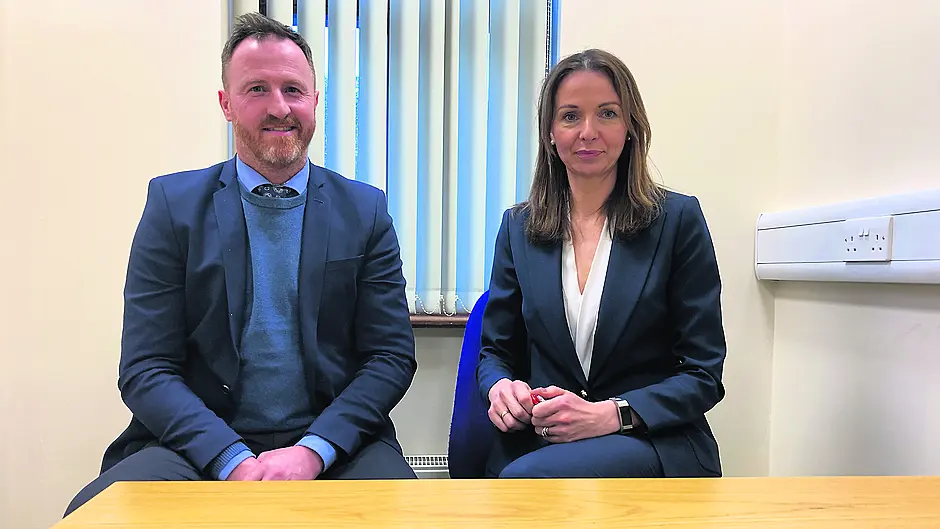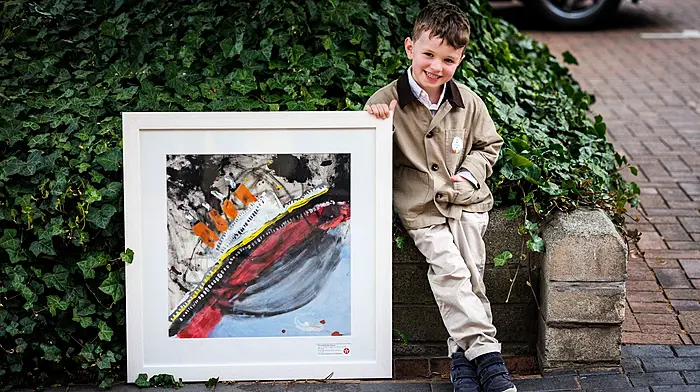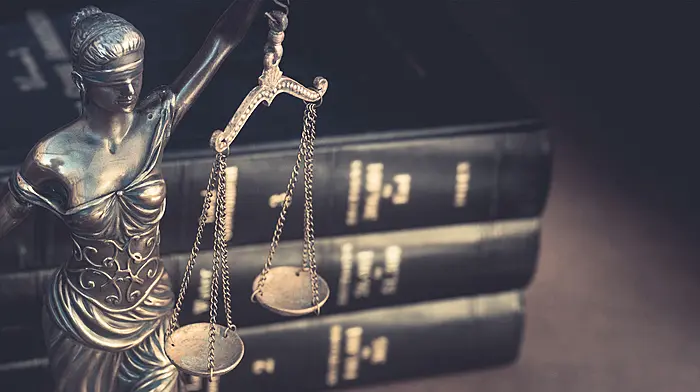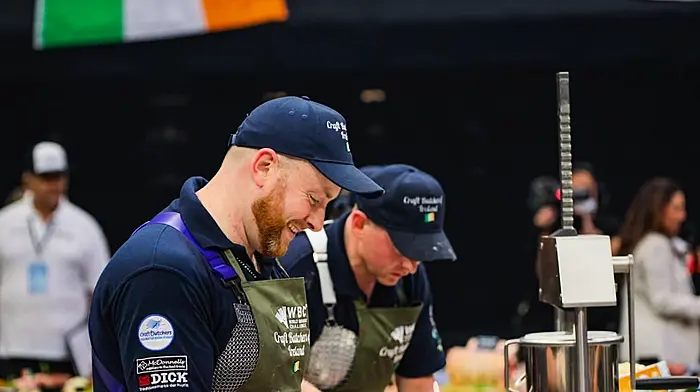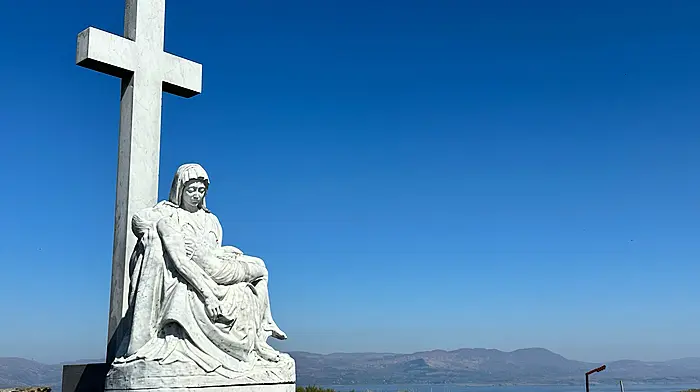The Protective Services Unit (PSU) in West Cork has already had much success in investigating crimes of a sensitive nature, even though it is just over two years in operation, reports Siobhán Cronin
UNTIL 2020, reports of highly sensitive crimes, like sexual assault, rape, domestic violence, and even human trafficking in West Cork, were investigated by the same gardaí who might, for example, be investigating local burglaries or road traffic offences.
The West Cork Protective Services Unit – which is based above Dunmanway garda station – was part of a roll-out of similar units right across the country, in an initiative driven by Garda Commissioner Drew Harris.
Commissioner Harris identified the importance of training gardaí to specifically deal with highly sensitive cases, and the victims of these crimes.
The unit in Dunmanway is staffed by a team of skilled detective gardaí, overseen by a detective garda sergeant and a detective inspector.
The need for such units across the country was identified some time ago, given the rise in violent and sexual crimes, as well as the use of the internet to perpetrate crimes of a sensitive nature.
‘It was driven primarily by Commissioner Harris,’ explains Det Insp Joanne O’Brien, who heads up the unit in West Cork.
The gardaí have undergone specialised training to deal with both victims and alleged perpetrators and on how best to approach the types of crimes which are becoming, unfortunately, so much more common.
‘You have to remember that you are dealing with a lot of vulnerable people,’ she says, bringing The Southern Star on a tour of the newly-revamped offices in Dunmanway.
‘The victim is vulnerable, of course, but often so, too, is the alleged perpetrator. The majority of perpetrators of sexual abuse, for example, have themselves been victims of abuse. There are a lot of vulnerable people involved.’
Insp O’Brien, who has been in the gardaí for 22 years, leads a team of trained, specialist investigators. She gets the files from her garda colleagues, or cases might be referred from other State bodies, or NGOs, and even private counsellors.
Insp O’Brien decides which cases are appropriate for the unit and her colleague, Det Sgt Kevin Long, assigns a team to investigate.
While the teams operate out of the garda station in Dunmanway, the interviews with victims and witnesses take place off-site, in homes, or in neutral venues.
Sgt Long explains that among the most common issues the teams deal with today, are instances of intimate photos being shared amongst young people. The sharing may begin out of innocence, with a young girl sending an intimate photo to a boyfriend, for example, not realising the danger of it being forwarded on again, some time in the future.
There are a lot of elements to such a case that need careful handling – and this is where the specialist training kicks in.
‘We have had quite a few of these cases,’ explained Sgt Long. ‘And you have to remember a few things – first of all, if the children are underage, the photographs are, in effect, child pornography. And secondly, it is an unusual instance whereby the child who sent the photo is both the victim and the perpetrator of the crime.’
This is the very type of case where a gentle approach is warranted and the training kicks in instantly. If the gardaí get early notice of such a situation, either from a young person or a parent, then they can have a very swift and successful outcome to what could otherwise rapidly deteriorate into a very distressing situation.
Both Insp O’Brien and Sgt Long admit that dealing with US-based social media platforms can be challenging, but one of the advantages of having such specific garda units in operation is that, over time, they can build relationships with third parties, in the hope of expediting information gathering in the future.
When it comes to crimes involving adults, like sexual assault, rape or abuse, the team needs to be methodical and very specific in its approach, to increase the chances of getting a successful outcome.
But even after just two years, they have received a lot of praise for their forensic-type detail in investigating such cases.
‘Thankfully, we have received a lot of good feedback from the DPP’s office about the files we have sent on, and we also have a very good relationship built up now with the likes of Tusla and West Cork Women Against Violence (WCWAV),’ admits Insp O’Brien.
There have also been a number of high profile successful prosecutions for sexual assault and rape, which originated in the West Cork office.
In reference to the WCWAV, Insp O’Brien says the work the organisation does is vital in West Cork, helping women to find safe spaces before and after complaints are made about partners, but WCWAV might also refer cases to the PSU in Dunmanway, if they feel crimes have been committed, with the permission of the victims of course.
‘There was a time in policing when it was all about getting “the bad guy”, says Sgt Long, ‘and the victim was, to some degree, forgotten. Now the culture has changed so much, and it’s great to see the victim is the primary focus now.’
If there was one area where the unit would like to see more progress, says Insp O’Brien, it would be to encourage more male victims of abuse and coercion to come forward.
‘We have had several instances of family members or friends coming forward, telling us there is a problem, but when we go to meet the alleged victim, they just won’t want to make a complaint, or get involved at all. There is still a lot of stigma attached to male abuse victims and we would really like to see that change.’
But the unit’s work is not just about solving crimes.
It’s also about providing a full service to victims – giving them information on how to remain safe, providing them with access to services and supporting them before, during and after any court appearances.
A dedicated unit like the Dunmanway PSU means that the gardaí now have the time, ability and training to deal with these important cases and assess them, right from the moment that first call or contact is made, through to a prosecution and beyond.
‘I have been waiting for units like these in the gardaí for years,’ says Insp O’Brien. ‘As far as I am concerned, they couldn’t have come too soon.’
• To report a crime of a sensitive nature, call to your local garda station, or any garda station, or ring 999 in an emergency. The garda you contact can refer you to the PSU if the alleged crime fits the criteria for PSU investigators.
Watch a Southern Star video report about the unit here.
How to make a report
When you are a victim of crime, you are entitled to receive information, support and protection from all state agencies in the criminal justice system.
What do you need to do?
Whenever you report a crime to An Garda Siochana, whether you are a victim or a witness, you will need to:
• Provide as much information as you can about the offence;
• Explain if you have any concerns about your (or your family’s) safety, so you can get the appropriate advice;
• Provide your contact details to allow gardaí update you with the progress of the investigation;
• Update gardaí with any other changes - you may have noticed further losses or damage since you first reported the offence, or you may be suffering further effects from an injury caused by the crime or if your contact details have changed.
For a comprehensive look at the process, see the FAQ section @ www.garda.ie
The Commission for the Support of Victims of Crime (www.csvc.ie) supports organisations that provide a number of services to victims of crime. These organisations support victims of domestic abuse, sexual violence, human trafficking, as well as tourist victims of crime, child victims, families of victims who are killed and victims of general crime.

